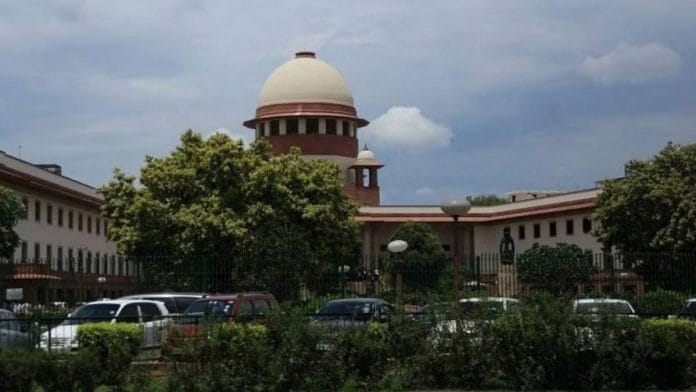New Delhi: Taking into account the acute water shortage in Rajasthan, the Supreme Court last week permitted the dredging and desilting of sediments in the Bisalpur dam, barred by the National Green Tribunal (NGT) last year on the ground that the activity needed environmental clearance.
A vacation bench of Justices P.S. Narasimha and Sanjay Karol allowed the firm that was given the contract to carry out the desilting of the dam, which, according to Rajasthan government’s submission to the court, is a lifeline reservoir of drinking water for three districts — Jaipur, Ajmer and Tonk.
The order came on the firm’s application, which had last challenged the environment court’s order in December as well. The apex court had not put the NGT order on hold then.
In the application, seeking an urgent interim order to stay the tribunal’s judgment from November 2023, the firm had said that it was imperative to do the desilting, as the three major cities of the state are highly dependent on the dam for drinking and usable water.
Rajasthan government and the state’s Eastern Rajasthan Canal Project Limited (ERCPL) affirmed the firm’s concern and said that if the desilting, dredging and disposal were not allowed prior to the monsoon season, the same would cause serious water scarcity for the three districts. Moreover, non-desilting of the dam would also have led to the risk of floods in the neighbouring areas of the reservoir, they told the bench.
Accepting the contentions of both the firm as well as the state government, the court on 25 May allowed the desilting to restart. It ruled that the firm must maintain an account of the material removed from the stockpile, and ordered a stay of the NGT’s order till the next date of hearing — 16 July.
Also Read: SC questions Kejriwal’s delay in seeking more time to surrender, refers application to CJI
The NGT order
On 26 November 2023, the NGT had prohibited ERCPL from proceeding with desilting, dredging of mineral extraction and disposal at the Bisalpur dam in Tonk district. It had held that desilting or dredging activities under the guise of mineral extraction via mining operations could not proceed without adherence to environmental laws.
The tribunal’s central zone bench in Bhopal had also directed the state pollution control board to take necessary “preventive, prohibitory, punitive and remedial measures in case of violations of environmental laws”.
NGT’s order had come in response to a petition filed by a Jodhpur-based resident, who had claimed that the bid issued to desilt the dam did not comply with the Sustainable Sand Mining Management Guidelines of 2016 and the Enforcement and Monitoring Guidelines for Sand Mining of 2020.
Before the green tribunal and even the apex court, the firm had objected to the locus standi of the petitioner. The company had also sought to dispel the notion that the work order pertained to sand mining, and had maintained that it was an incorrect premise and misconception.
Arguments against desilting ban
In its application for interim relief, however, the company had highlighted that before NGT’s stay order, it had already dredged one lac metric ton of sand from the dam.
If the dredged material is not disposed of before the onset of monsoons, it is bound to cause harm to the dam as well as the nearby areas. Furthermore, if the dredging is not carried out before the rains, the dead capacity of the dam also increases, resulting in reduction of the live storage capacity of the dam, which ultimately leads to shortage of water supply.
Rajasthan government and ERCPL — represented by Solicitor General Tushar Mehta and state’s Additional Advocate General Shiv Mangal Sharma — supported the firm’s request, contending that the NGT order would cause “serious water scarcity” in Rajasthan’s three districts.
Sedimentation has led to reduction of water storage capacity of the dam, due to which around 3.5 million people are deprived of drinkable water, the court was told. It was argued that desilting was the only way to cater to the needs of the people residing in the three districts.
On the tribunal’s observation that desilting was akin to sand mining, the state and ERCPL claimed that the bid was not for the dredging and desilting of a river, but that of a dam, which is a man-made structure. They said that it was being done to specifically reclaim storage capacity and, therefore, no environment clearance was needed.
The two also told the court that if the storage capacity of the dam was not utilised to the maximum after desilting and dredging, it would lead to floods in the reservoir’s neighbouring areas.
(Edited by Mannat Chugh)
Also Read: What’s Article 329(b) invoked by EC in SC that restricts judicial intervention in poll process






